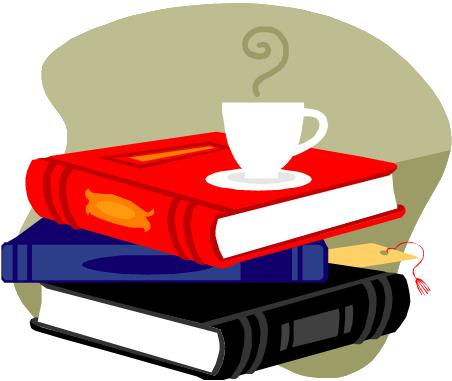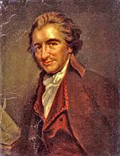
 |
NHCommonsense.org 
|
All I Really Need to Know I Learned in Kindergarten
|
Please go to the new Coffee Coaster site implemented more gracefully in Wordpress. This page: http://brianrwright.com/CoffeeCoasterBlog/?p=4543 |
The inspiration for reading this book comes from a reference at the Free State Project 2007 Winter Porcupine Festival. John Stossel of ABC 20/20 "skewerer of conventional knowledge" fame addressed us at the banquet with a message that simplicity favors liberty. He paraphrased Fulghum's charming little book as follows:
1) Don't hit people
2) Don't steal people's stuff
3) Keep your promises
A set of premises totally in keeping with the Sacred Nonaggression Principle (SNaP) and, equally important, a prescription for living well. The author of All I Really Need to Know I Learned in Kindergarten, Robert Fulghum, at least has lived widely: having been a ranch hand, a folksinger, IBM salesman, professional artist, parish minister, bartender (I almost wrote 'parish bartender' :-)), teacher of drawing and painting, and father. At least for the time when the book was published in 1988 he lived with his wife on a houseboat in Seattle.
So the author is what one might call a free spirit. When asked, "What do you do?" he usually replies that he is a philosopher, and then explains what he likes to do is think a lot about ordinary things then express what he thinks by writing or speaking or painting, whichever seems appropriate. In All I Really Need to Know we have a series of short essays about "ordinary things"... like kindergarten, eensy-weensy spiders, South Pacific islanders who yell at trees, raccoons making whoopy in the crawlspace, buying deerskin gloves in San Saba, Texas, coloring with Crayola crayons, and other rituals of "deep-rooty places."
Fulghum's essays are uniformly brilliant and efficient: the long ones are at most 1000 words. I know, my readers sometimes wish I could be so terse, or at least write more about
ordinary things than things political. But Fulghum is working a different corner from mine. And cleaning up! According to his Wikipedia article, he has sold more than 16 million books in 27 languages in 103 countries. Simplicity sells.
So budding authors, take Fulghum's tack to heart. Myself reading so much in the course of my Coffee Coaster work, I'm beginning to get a sense of where the collective consciousness of humanity is headed. And I think Fulghum's work perfectly distills the benevolent awareness coming up the road, none too quickly I might add. What's that famous quote from William Blake:
To see the world in a grain of sand, and to see heaven in a wild flower, hold infinity in the palm of your hands, and eternity in an hour.
What a marvelous metaphor for getting the most out of life! When you read one of the better Fulghum essays in Kindergarten or his other writings, you're struck immediately by his care for the details.
For example, the author does a piece about his shoe cobbler Elias Schwartz whom Fulghum claims is the 145th reincarnation of the Haiho Lama—the Lama was known for "doing wise things in small, mysterious ways."
Fulghum takes his prized loafers to Elias for a complete renovation. The cobbler inspects the loafers carefully, then announces regretfully the loafers are beyond repair. The cobbler then goes to the back of the shop and returns with the shoes in a stapled brown bag "for carrying" Fulghum thinks. When Fulghum gets home, he opens the bag. In each shoe is a chocolate chip cookie wrapped in wax paper. Accompanying the cookies is a note:
"Anything not worth doing is worth not doing well. Think about it."—Elias Schwartz
Sounds like the Taiho Lama to me!
So that gives you the lay of the land for a typical Robert Fulghum essay: what we can all learn from people or from nature by paying simple attention.
I like the way Fulghum's writing folds in with some of the better qualities of Eastern religions such as Buddhism or, recently, fits the thinking of Eckhart Tolle and The Power of Now. From personal experience, it's truly amazing how rich reality becomes when you come into the Present and experience it: "How'd I ever miss that perfectly shaped elm tree at the condo complex entrance?" "You know, I just noticed my wife has an angelic laugh; how can I hear it more often?"
Back to the kindergarten theme. His first essay, the author actually has quite a longer list of what we can learn from kindergarten than my libertarian essentials above, including: cleaning up your mess, putting things back where you found them, washing your hands, flushing, etc. Sure enough, simplicity makes for good storytelling. In the process of enjoying these gems, you'll grasp how the author lives up to his Storyteller's Creed:
I believe that imagination is stronger than knowledge.
That myth is more potent than history.
That dreams are more powerful than facts.
That hope always triumphs over experience.
That laughter is the only cure for grief.
And I believe that love is stronger than death.
—RF
Easy SpaceGuard
###
 |
 |
|||
| New Pilgrim Chronicles Forum |